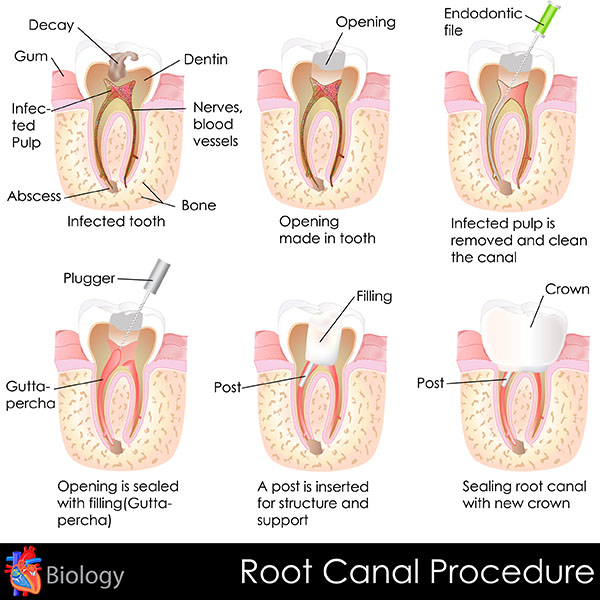If you’ve recently had a root canal procedure, you’re probably wondering about the best ways to care for your teeth afterward. Well, look no further! In this article, we’ll provide you with some valuable tips from an affordable dental expert on root canal aftercare. Taking care of your teeth after a root canal is crucial for ensuring a successful recovery and maintaining your oral health in the long run. So, let’s dive in and learn how to keep that smile shining bright!
After undergoing a root canal, you may experience some tenderness and sensitivity in the treated tooth. But fear not! Our affordable dental expert is here to guide you through the healing process. From avoiding certain foods to maintaining good oral hygiene practices, we’ve got you covered. So, grab a seat, relax, and let’s explore the world of root canal aftercare together. Trust us, your teeth will thank you!
After undergoing a root canal procedure, it’s important to follow proper aftercare to ensure optimal healing. Here are some tips from an affordable dental expert:
1. Take prescribed medications as directed by your dentist.
2. Avoid chewing on the treated tooth until it’s fully healed.
3. Maintain good oral hygiene by brushing and flossing regularly.
4. Avoid hard and sticky foods that can potentially damage the restoration.
5. Attend follow-up appointments to monitor the healing process.
Remember, proper aftercare plays a crucial role in the success of your root canal treatment. Consult with your dentist for personalized advice.

Root Canal Aftercare: Tips from an Affordable Dental Expert
Root canals are a common dental procedure that many people undergo to save a tooth from extraction. While the actual root canal treatment is essential, the aftercare is just as crucial to ensure proper healing and long-term success. In this article, we will provide you with expert tips on how to take care of your teeth and gums after a root canal procedure. By following these guidelines, you can promote healing, prevent complications, and maintain good oral health.
1. Managing Discomfort and Pain
It is normal to experience some discomfort and pain after a root canal procedure. The level of pain can vary from person to person, but it is usually manageable with over-the-counter pain medications such as ibuprofen or acetaminophen. However, if you experience severe or persistent pain, it is important to contact your dentist for further evaluation. They may prescribe stronger pain medication or recommend additional treatment options to alleviate your symptoms.
In addition to pain management, you can also apply a cold compress to the outside of your face in the area where the root canal was performed. This can help reduce swelling and provide temporary relief. It is important to avoid applying heat to the area, as it can increase inflammation and prolong the healing process.
2. Maintaining Oral Hygiene
Keeping your mouth clean is crucial after a root canal procedure to prevent infections and promote healing. Here are some essential oral hygiene practices to follow:
- Brush your teeth gently twice a day using a soft-bristle toothbrush.
- Use an antimicrobial mouthwash recommended by your dentist to rinse your mouth.
- Floss daily to remove plaque and debris from between your teeth.
- Avoid smoking and consuming alcohol, as they can delay healing and increase the risk of complications.
It is important to note that you should avoid brushing or flossing directly on the treated tooth until your dentist gives you the green light. This will prevent any damage or irritation to the area.
3. Eating and Drinking Guidelines
After a root canal procedure, it is important to be mindful of what you eat and drink to aid in the healing process and prevent any damage to the treated tooth. Here are some guidelines to follow:
- Avoid chewing on the side of your mouth where the root canal was performed until your dentist advises otherwise.
- Avoid hard, crunchy, or sticky foods that can potentially dislodge or damage the temporary filling or crown.
- Stick to soft foods and liquids initially, gradually reintroducing regular foods as advised by your dentist.
- Avoid consuming hot or cold foods and beverages, as sensitivity is common after a root canal. Opt for lukewarm or room temperature options.
Following these eating and drinking guidelines will minimize the risk of complications and promote a smooth recovery.
4. Attending Follow-Up Appointments
After a root canal procedure, your dentist will schedule follow-up appointments to monitor your progress and ensure proper healing. It is crucial to attend these appointments as they allow your dentist to assess the success of the procedure and make any necessary adjustments or recommendations.
During these visits, your dentist may take X-rays, check the integrity of the temporary filling or crown, and evaluate your overall oral health. They will also provide you with further instructions on how to care for your teeth and gums at home.
5. Recognizing Signs of Complications
While complications after a root canal are rare, it is essential to be aware of any signs that may indicate a problem. Contact your dentist if you experience any of the following symptoms:
- Severe or worsening pain that is not relieved by over-the-counter medications
- Persistent swelling of the face or gums
- Excessive bleeding from the treated tooth or gums
- Loose or dislodged temporary filling or crown
- New or worsening sensitivity to hot or cold temperatures
- An unpleasant taste or odor in the mouth
By recognizing these signs early on and seeking prompt dental care, you can prevent further complications and ensure the success of your root canal procedure.
Conclusion
Proper aftercare is essential to ensure the success of a root canal procedure. By managing discomfort, maintaining oral hygiene, following eating and drinking guidelines, attending follow-up appointments, and recognizing signs of complications, you can promote healing and maintain good oral health. Remember to always consult your dentist for personalized advice and recommendations based on your specific situation. With the right care and attention, your root canal can be a successful treatment that allows you to preserve your natural tooth for years to come.
Key Takeaways: Root Canal Aftercare Tips from an Affordable Dental Expert
- 1. Maintain good oral hygiene by brushing and flossing regularly.
- 2. Avoid hard and sticky foods that can damage the treated tooth.
- 3. Take prescribed pain medication as directed by your dentist.
- 4. Avoid smoking or using tobacco products, as they can hinder the healing process.
- 5. Schedule regular check-ups with your dentist to ensure proper healing and long-term dental health.
Final Summary: Expert Tips for Root Canal Aftercare
So there you have it, my friends! We’ve covered a lot of ground when it comes to root canal aftercare, and I hope you’ve found these expert tips helpful and informative. Taking care of your teeth and gums after a root canal procedure is crucial for a successful recovery and long-term oral health. Remember, prevention is always better than cure, so it’s important to maintain good oral hygiene practices even after your root canal treatment.
First and foremost, be gentle with your mouth during the healing process. Avoid chewing on hard or sticky foods that could potentially damage the treated tooth. Opt for softer, easy-to-chew options that won’t put unnecessary strain on the area. Additionally, maintaining a consistent oral hygiene routine is key. Brush and floss regularly, being careful around the treated tooth, and consider using a mouthwash recommended by your dentist to keep bacteria at bay.
Don’t forget to schedule regular check-ups with your affordable dental expert to ensure that everything is healing properly and to address any concerns or questions you may have. By following these tips and taking proper care of your teeth, you’ll be well on your way to a healthy and happy smile. Your dental health is important, so don’t neglect it. Remember, a little bit of TLC can go a long way in maintaining a lifetime of oral wellness.
Now go forth and embrace your newfound knowledge, my friends! Take charge of your oral health and let those pearly whites shine bright. Cheers to healthy teeth and happy smiles!









